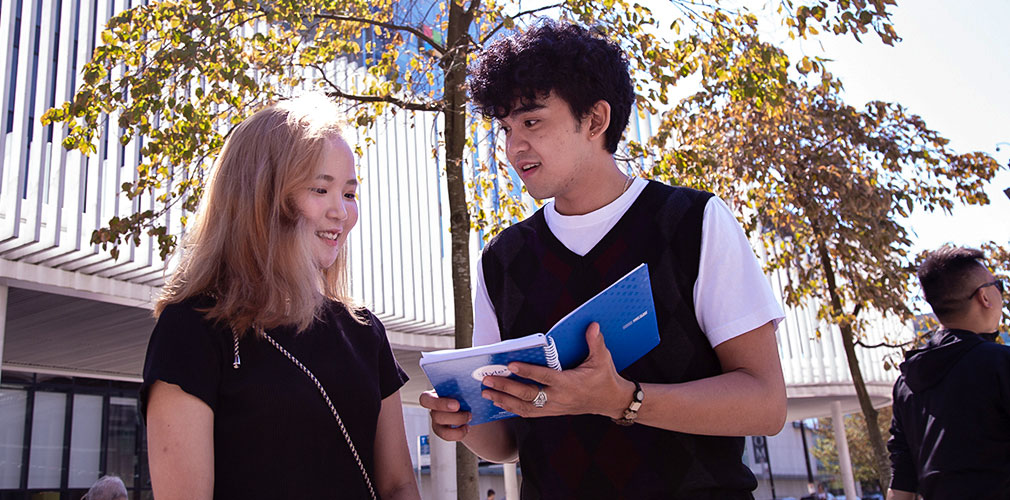Associate of Arts (Business and Psychology) Degree

The Associate of Arts degree is a two-year undergraduate program offered by many institutions in the province of British Columbia and beyond. The Associate Degree program is designed to provide broad-based knowledge and experiences which lay a foundation for further undergraduate study.
For full program description, requirements, and policies, see the Academic Calendar.
Program Description

What you will learn
Students of the Associate of Arts (Business and Psychology) Degree program will gain multi-disciplinary knowledge in the faculties of arts, humanities, and social science, and develop their critical thinking and research skills.
The program also includes a customizable joint concentration in business and psychology, which allows students to explore different areas of study in business, including micro/macro economics, labour and managerial economics, banking and finance, accounting, marketing, in conjunction with studies in psychology, including developmental, behavioural, social, and abnormal psychology.
Students will learn about the foundations of human behaviour and thinking which impact business decisions, marketing, employment, etc.
Program Structure
The Associate of Arts (Business and Psychology) Degree is a foundational degree consisting of 60 credits in total, typically completed over a two-year period. Program requirements include a range of breadth requirements, as well as 12 credits in economics, 18 credits in psychology, and 9 credits in commerce.

What you can do after graduation
Transfer to 2nd/3rd Year at a University
An Associate of Arts (Business and Psychology) Degree may be transferrable to the third year of a four-year bachelor’s degree program at a university.
Some BC universities also admit Associate Degree graduates at a reduced GPA requirement. For more information on the option of transferring to a university upon completion of an Associate of Arts (Business and Psychology) Degree, please consult the BC Transfer Guide or see an Academic Advisor.
Program Requirements
The Associate of Arts (Business and Psychology) Degree program consists of the following course requirements, which must be completed with a cumulative GPA of 2.0 or greater.
- 6 credits in first-year English, including:
- ENGL 100
- 9 credits in science which shall include at least:
- 3 credits in mathematics, computer science or statistics (statistics courses taught in subject areas of commerce and psychology may also be used)
- 3 credits in a laboratory science
- 36 credits in arts, 18 of which must be taken at the second-year level in two or more subject areas, including:
- 12 credits in economics
- 6 credits in humanities other than English
- 18 credits in psychology
- 9 credits in Commerce

Our Student Stories






